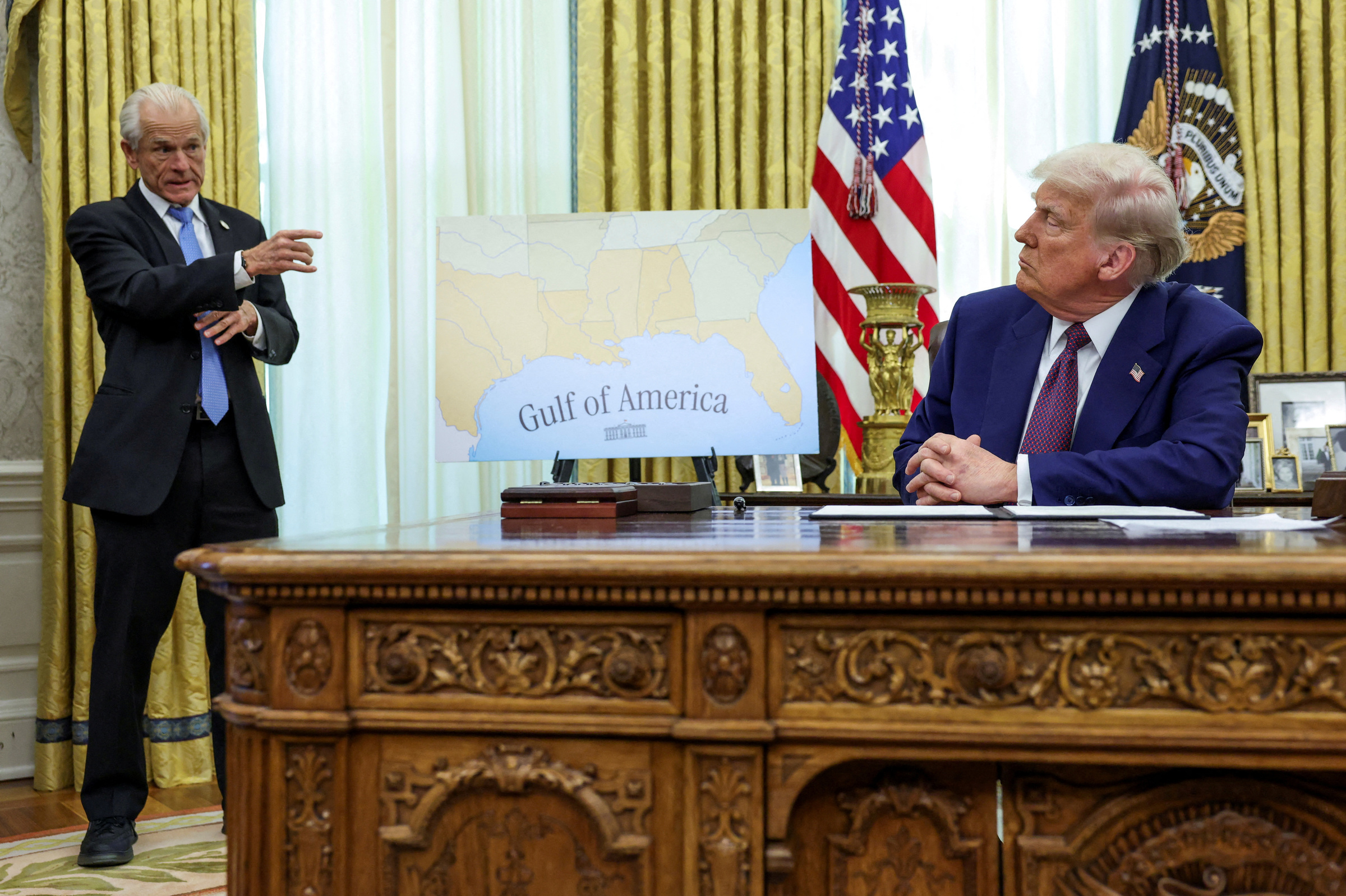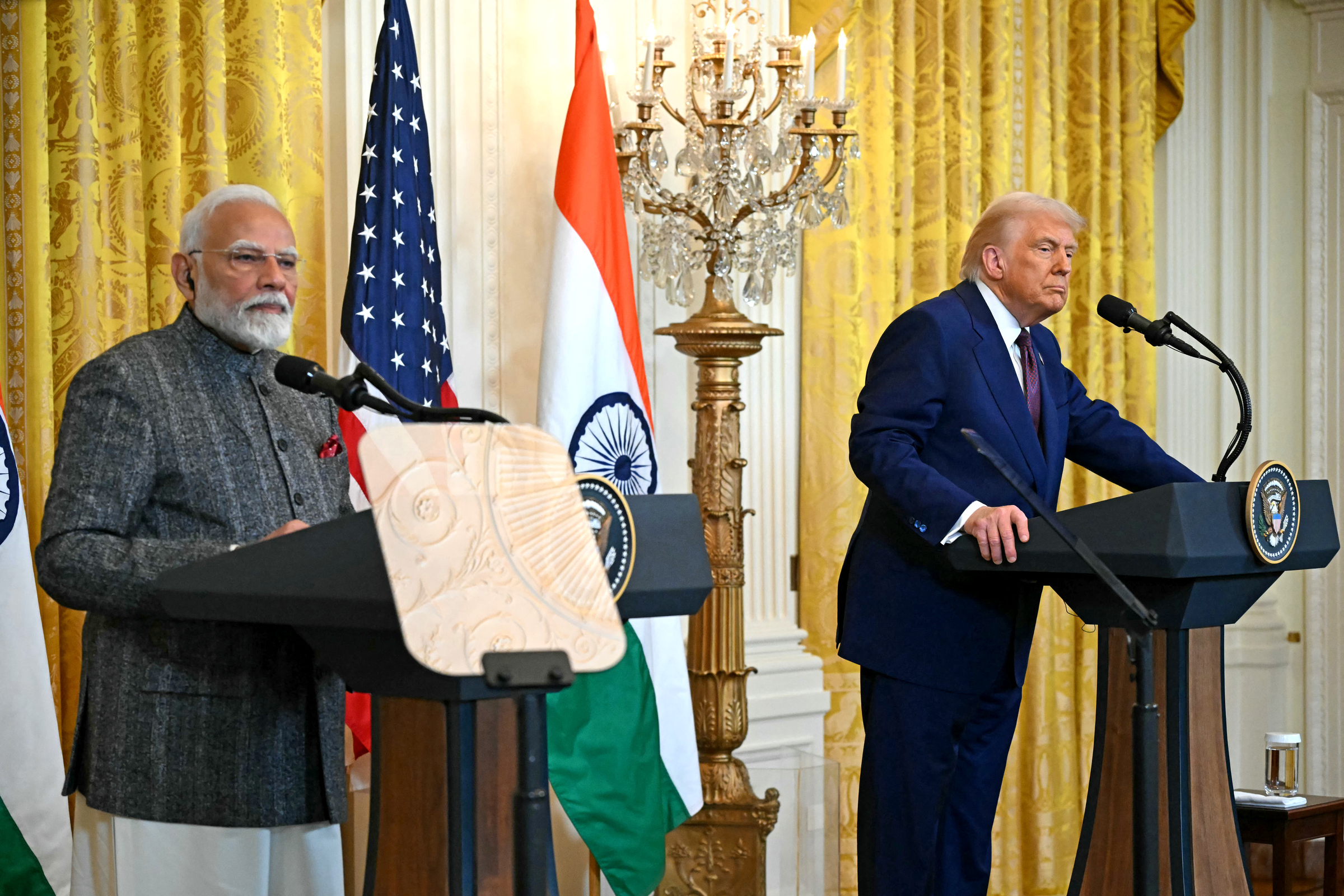Peter Navarro, one of President Donald Trump's longest-serving and most trusted advisors, has recently launched repeated attacks against India and Prime Minister Narendra Modi. He told Bloomberg on 27/8 that the conflict between Russia and Ukraine is "Mr. Modi's war".
A day later, Navarro wrote on X that New Delhi has become an "accomplice" in helping Russian crude oil circumvent Western sanctions. Last weekend, he said on Fox News that Indian officials are "profiting" from the conflict. India has repeatedly denied such allegations.
The relationship between the US and India, a nation once hailed by Trump as a key strategic partner, is at its lowest point in decades. Washington's harsh rhetoric towards New Delhi is exacerbating the situation and hindering efforts to repair bilateral ties.
 |
US Trade Advisor Peter Navarro and President Donald Trump at the White House on 13/2. Photo: Reuters |
US Trade Advisor Peter Navarro and President Donald Trump at the White House on 13/2. Photo: Reuters
The critical comments from Trump's economic advisor have fueled resentment in India, where businesses are facing heavy US tariffs. Last month, Trump increased tariffs to 50% to punish the country for buying Russian oil. Political analysts even worry that these actions could spark anti-American sentiment in India and lead to long-term consequences.
"These criticisms from the advisor have truly offended New Delhi," said Chietigj Bajpaee, a senior research fellow on South Asia at Chatham House, warning that this could push India to reduce cooperation with Washington in important areas like defense.
An anonymous US official said the Trump administration acknowledges that Navarro's comments are "not helpful" to the bilateral relationship, and the US Department of State has been tasked with finding ways to stabilize the relationship with India.
Secretary of State Marco Rubio and US Trade Representative Jamieson Greer are trying to resolve this diplomatic crisis. Sources familiar with the matter say Rubio and Greer recently went to the Oval Office to present President Trump with a proposed trade deal with India, but he rejected it.
The core of the proposal involves India significantly reducing import taxes on US goods. This is seen as a major concession from New Delhi in the ongoing trade standoff between the two countries. The US Embassy in India also posted on X, emphasizing that the partnership between the two sides continues to reach new heights, describing it as a defining relationship for the 21st century.
White House Deputy Press Secretary Anna Kelly told the Washington Post that "President Trump and Prime Minister Modi have a respectful relationship, and US and Indian officials remain in contact on the full range of diplomatic, defense, and trade priorities of the strategic partnership".
The State Department press office also issued a statement saying "India should do more to address US trade concerns," adding that the Trump administration is simply working to protect American workers and interests.
However, sources say Trump has refused to compromise on tariffs unless India commits to reducing its purchase of Russian oil. "India buys most of its oil and weapons from Russia, very little from the US. They now offer to reduce tariffs to 0, but it's too late," Trump wrote on social media on 1/9, adding that the US-India economic relationship is "totally a one-way disaster".
Such actions do not seem effective in quelling the tension in the bilateral relationship.
"On the one hand, you talk about the strong friendship between the two countries, but on the other hand, officials in Washington make harsh comments every day," Sujeet Kumar, a member of parliament from Prime Minister Modi's ruling Bharatiya Janata Party, wrote on X.
 |
Indian Prime Minister Narendra Modi (left) and US President Donald Trump at the White House on 13/2. Photo: AFP |
Indian Prime Minister Narendra Modi (left) and US President Donald Trump at the White House on 13/2. Photo: AFP
Prime Minister Modi, who spent years cultivating a personal relationship with Trump, has responded to US actions with a firm stance. A day after Trump announced the new tariffs, Modi said India was willing to "pay a heavy price" to avoid harming farmers, dairy workers, and fishermen just for a trade deal with the US.
"It would be unfortunate if dependence gradually becomes a habit," Modi emphasized the importance of national self-reliance on India's Independence Day on 15/8.
New Delhi also shows no signs of reducing its purchase of Russian oil. Indian Oil Minister Hardeep Singh Puri said this week that New Delhi "is not violating any rules" and is "keeping global prices from skyrocketing".
Modi recently traveled to China for the Shanghai Cooperation Organisation summit and met with President Xi Jinping. Statements from both sides did not detail the content of the meeting, but both leaders pledged to resolve their differences for the benefit of their 2.8 billion citizens.
Meanwhile, goodwill towards the US is declining in India. Ramdev, a prominent businessman who supports Modi, has called on Indian consumers to boycott US brands in response to Trump's 50% tariffs.
"No Indian should go to Pepsi, Coca-Cola, Subway, KFC, or McDonald's counters. If we can do this, trouble will occur in America," he said.
Thuy Lam (According to Washington Post)












